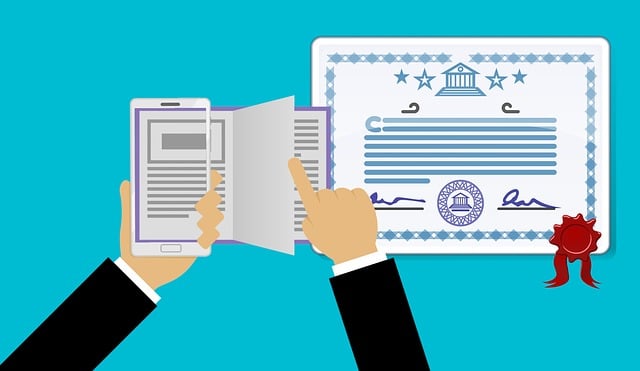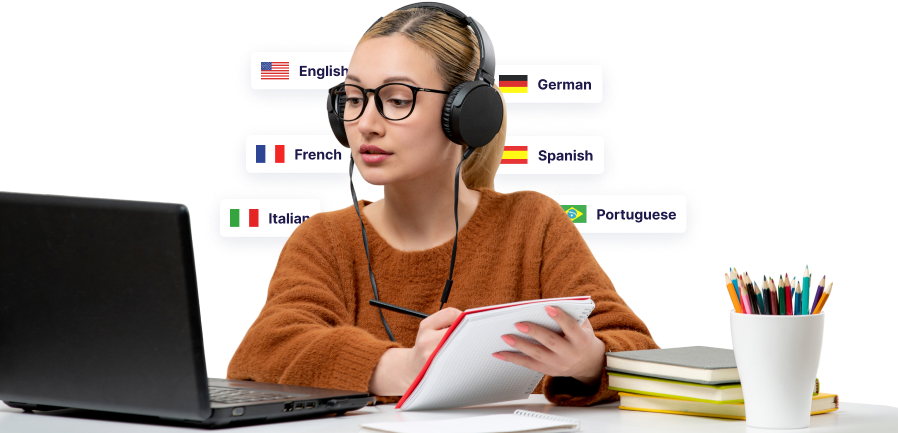Rapid Translate Team
Medical translators offer a crucial service in the healthcare industry. These professionals translate medical documents from one language to another. This highly specialized aspect of translation requires high technical and linguistic proficiency levels. But there’s a problem: how to become a medical translator.
Most of the time, people consider these translators to be interpreters. While they are quite similar, some disparities exist. Translators mostly focus on medical documents, while interpreters help patients communicate better with health providers.
Read on to discover everything about becoming this type of translator.

Table of Contents
What Do Medical Translators Do?
Medical translators interpret medical documents from one language into another. These professionals work on different health-related materials and documents. They cover documents, which include pharmaceutical information, medical reports, and academic journals.
Besides working with medical documents, these translators also work with medical trials. They also work with regulatory documents and protocols. Medical translation is a specialized field requiring several essential skill sets.
Excellent language skills are among the most important considerations for medical translators. But besides that, you must have a good understanding of biology, medicine, anatomy, and chemistry to be one. Accuracy is of utmost importance when it comes to medical translation. This is because errors can be quite problematic.
Again, people mostly use the terms medical interpreters and medical translators interchangeably. However, these professionals play different roles in the industry. Translators mostly deal with written documents. In essence, they create different language versions of medical documents.
On the other hand, interpreters mostly work with the oral part of languages. Here, they help patients communicate with healthcare providers. These professionals work in hospitals, nursing homes, medical facilities, and other health provision centers. Interpreters must have excellent oral proficiency and medical knowledge.

How To Become a Medical Translator in 2024
Are you considering becoming a medical translator? Unlike other translation roles, there is no straight way to become one. Nonetheless, you can follow certain steps to gain the skill and market yourself as a medical translator in 2024. Here is what to do:
1. Study and Know a Second Language
Although this seems like the obvious thing to do, it is the first step toward becoming a medical interpreter. Choose, study, and know a second language that interests you. Picking up a second language in High School helps you better. However, you can also learn one later in life.
Besides learning a second language, you’ll need more than a baseline knowledge of your primary language. So, consider furthering your knowledge of your first language. Although some people grow up in bilingual communities, they may still have to hone their skills.
Regarding translation, being fluent in both source and target languages is crucial. You must also understand the grammar, word choice, and syntax of the two languages.
2. Obtain a Bachelor’s Degree
Getting a bachelor’s degree isn’t necessary as a medical translator. However, this extra certification boosts your pedigree. Besides, many companies and organizations usually require one from a professional.
Consider taking translation studies or your second language as a major for your program. Then, you can also take a science- or medical-related course as your minor. Conversely, consider majoring in medicine, biology, or chemistry. Then, you can take your second language as a minor. Always keep the door open for further studies.
3. Pick Some Specialization Courses
Medical translation comprises several areas. As a professional, you’ll have to pick one area of focus. Several specialization courses are available to you when choosing a focus area. These courses help familiarize you with the terms involved. They also serve as bases for your continued education.
For instance, UC San Diego offers an online medical translation course in internal medicine. Also, the University of Arizona offers a short medical translation course. Taking these courses provides an edge over other translators when opportunities pop up. Of course, courses with more relevance to medicine are always preferable.
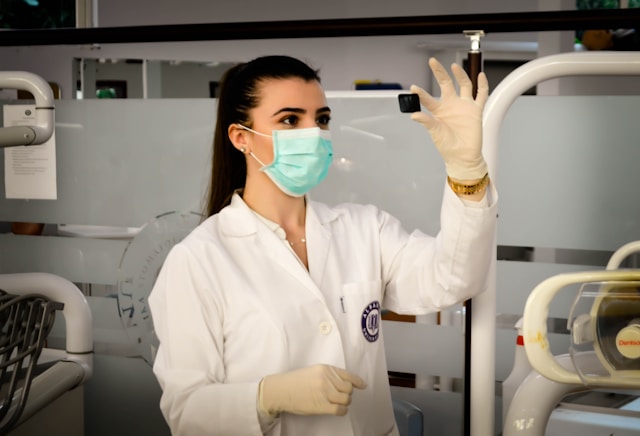
4. Acquaint Yourself With Local Laws
Certain laws regulate and govern medical translation. So, as a professional translator, you must understand and acquaint yourself with these regulations. Usually, different countries have different sets of laws.
So, you’ll have to consider these different laws when translating for people in those countries. The regulations usually cover patient privacy, medical devices, and the quality of translations.
5. Look for Experience
After getting the needed training and building your language skills, the next thing is to look for experience. Jumping into the labor market may not be the most helpful thing. Given that the translation industry is quite competitive, your experience sometimes sets you apart.
Consider volunteering or working as an intern for some time. Several non-governmental organizations offer excellent opportunities to join on-field operations. Besides that, you can download medical documents online to practice your skills.
All these experiences allow you to learn from your errors. Subsequently, you can minimize risks when you enter the field as a professional. While collecting experience, consider creating your glossary containing the terms you come across. This will help fast-track your growth as a medical translator.
6. Find Medical Translation Jobs
After getting all the necessary certifications and experience, the next thing is to find work. You can start working with a translation agency. Here, you can work as a freelance translator or an in-house translator.
Working for an agency offers some convenience since it saves you time and energy. Here, you would not have to find jobs on your own. As a beginner with no connections in the industry, this is a great way to start. You’re good to go once you know the source and target language well.
On the other hand, you can also start your translation career as a freelancer. This way, you can build your portfolio carefully. Also, consider working on fixed jobs for private establishments like medical centers or pharmaceutical companies.
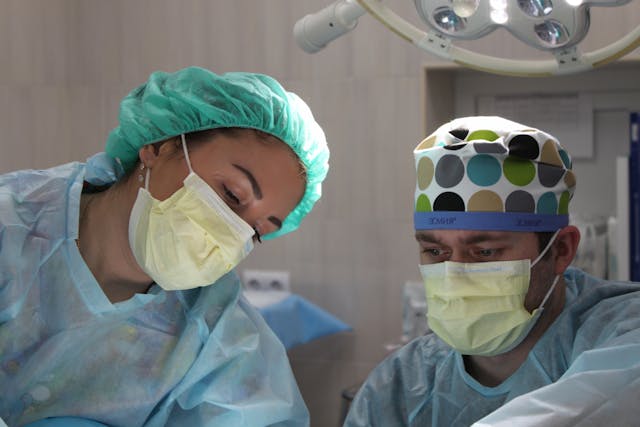
How To Become a Certified Medical Translator
To become a certified medical translator, you must complete a mandatory course. This compulsory medical interpreter training course involves at least 40 hours of training. You can choose to complete this training in person or online.
Generally, this course teaches the foundation of translation. It also covers the appropriate medical ethics and standards. Here, you’ll learn about medical terminology and the medical specifications based on your field.
Although there is no exclusive certification for a medical translator, the medical interpreter certifications suffice. Two organizations issue national certifications that allow you to become a certified translator.
First, the Certification Commission for Healthcare Interpreters (CCHI) offers the Core Certified Healthcare (CoreCHI) exams. This exam, usually computer-based, consists of a hundred multiple-choice questions. It encompasses the basic elements that make up medical translation.
The CCHI certifies professional translators whose specialties are Spanish, Arabic, Mandarin, and others. The certification exam involves oral tests that cover both the source and target languages.
Another place to become a certified medical translator is the National Board of Certification for Medical Interpreters. This organization offers the Certified Medical Interpreter (CMI) certification. The organization offers written tests in several languages. It covers languages like Spanish, Korean, Cantonese, Mandarin, and Vietnamese.
Both the CoreCHI and the CMI certifications are primarily for medical interpreters. However, they are also useful to translators. However, you can also obtain certifications from the American Translators Association. As long as you have legally-recognized certifications, they’ll bind in the relevant settings.
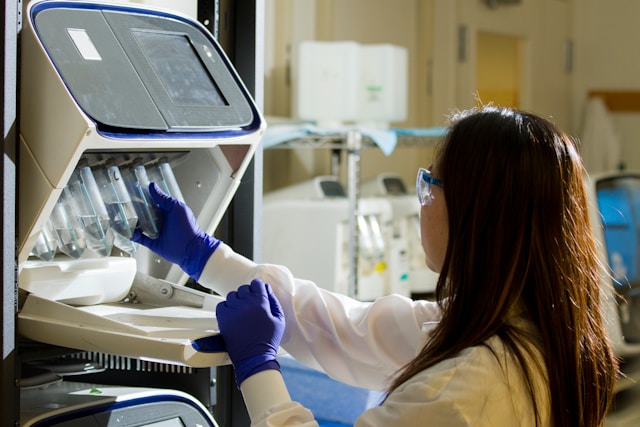
The Importance of a Medical Translator Certification
As a professional translator, employers and clients usually require that you have relevant certifications in the field. But you may often wonder why they are important. So, why is a medical translator certification important?
Your certification as a medical translator exposes you to more knowledge. Before obtaining any certification, you must take several compulsory courses from the certifying organization. During these courses, the organizations teach the subject to some extent. As a result, you can increase your knowledge.
In addition, your certification as a medical translator reinforces your profile as a professional. Since you’ll undergo some training before passing an exam, you must have proven yourself and your skills.
So, with your certifications, a potential employer or a client will have more faith when hiring you. Understanding how to become a medical translator helps you scale the process.
Rapid Translate comes in handy whether you need medical translation services or any other type of translation. This agency offers quick and reliable professional services, providing results in real-time. While you usually get your results within 24 hours, you can fast-track your projects.The company provides USCIS-certified medical translations across over 60 languages. Overall, you’d expect precise translations with 100% certification. Rapid Translate keeps your medical documents confidential throughout the translation process. Order now to enjoy limitless communication!



